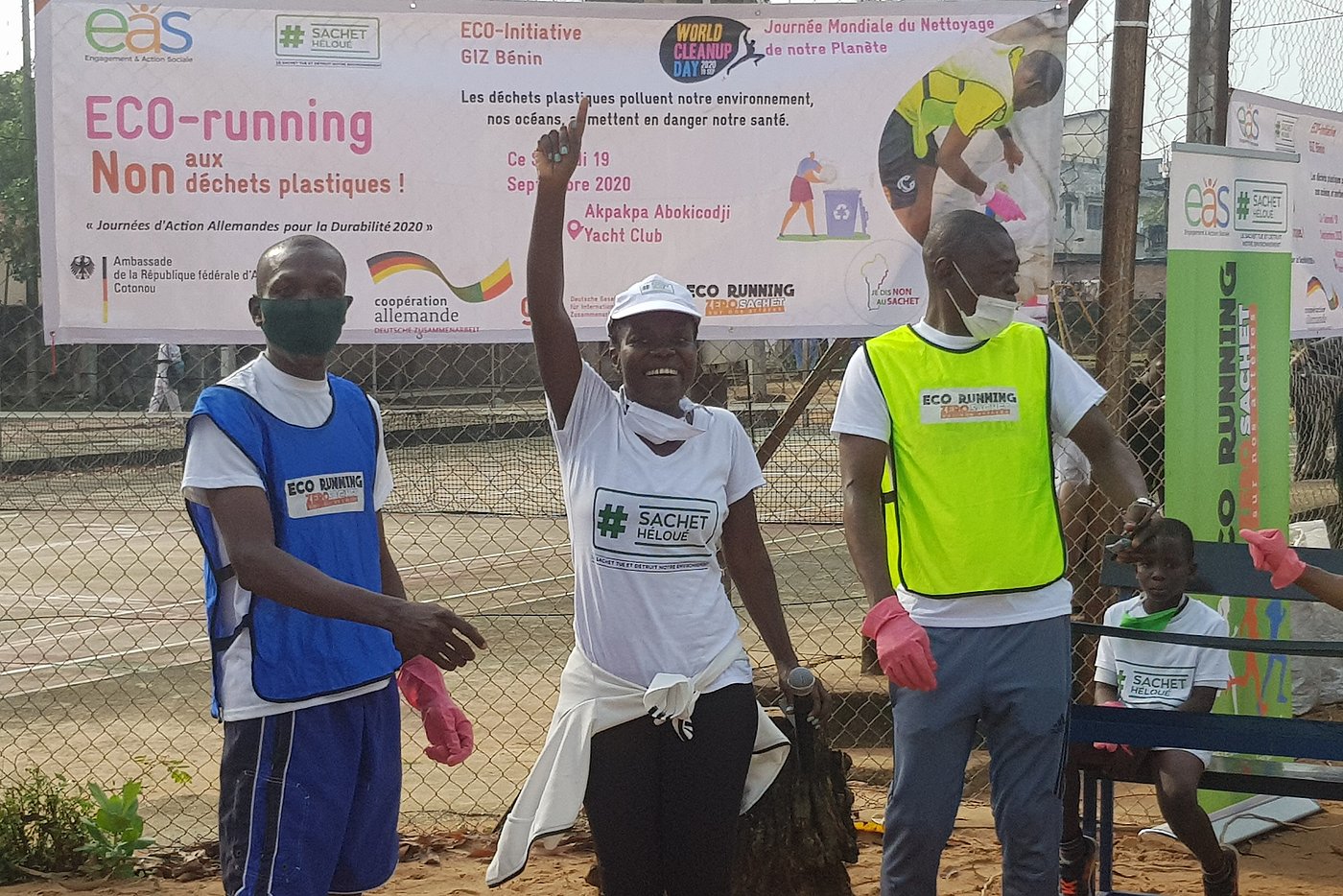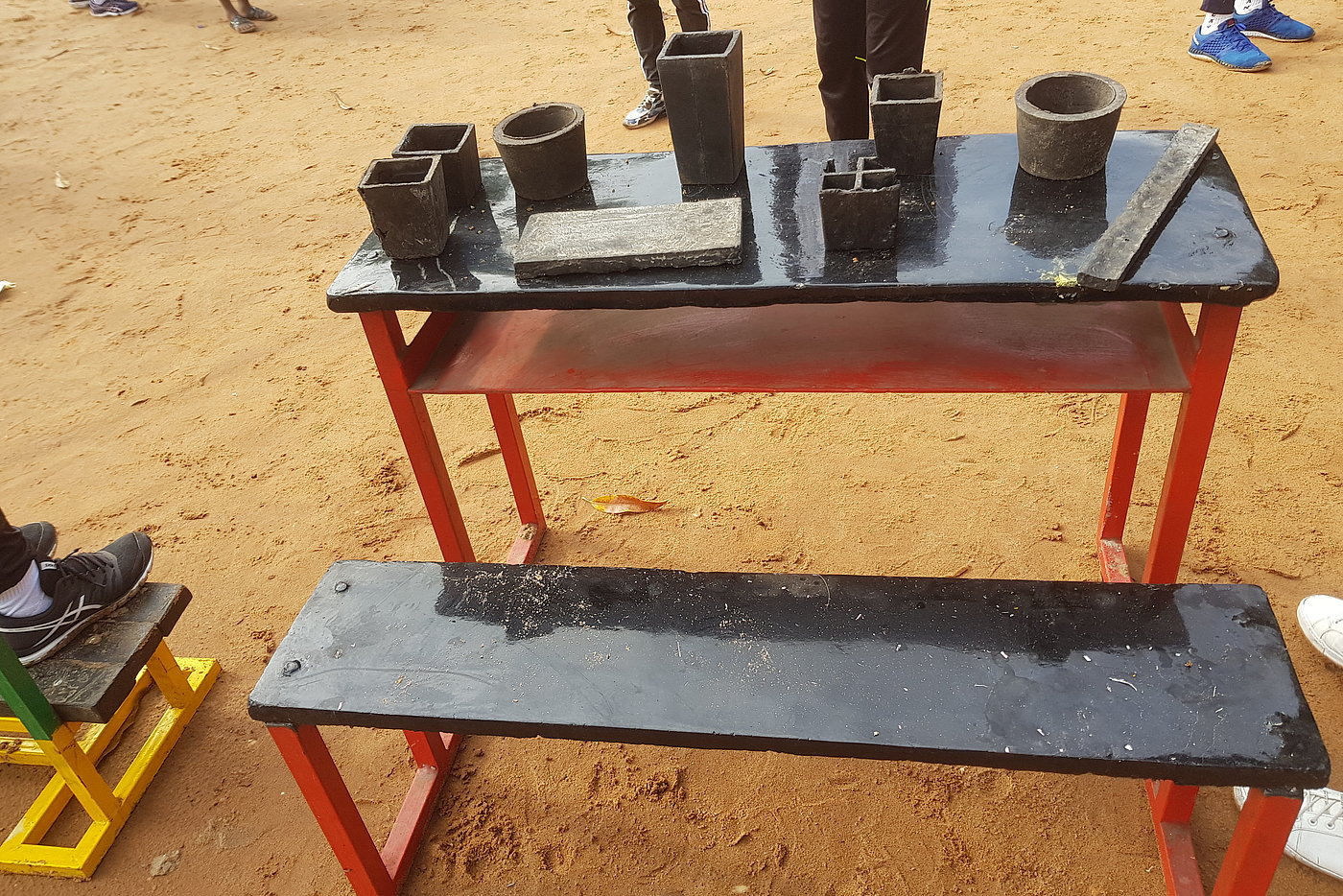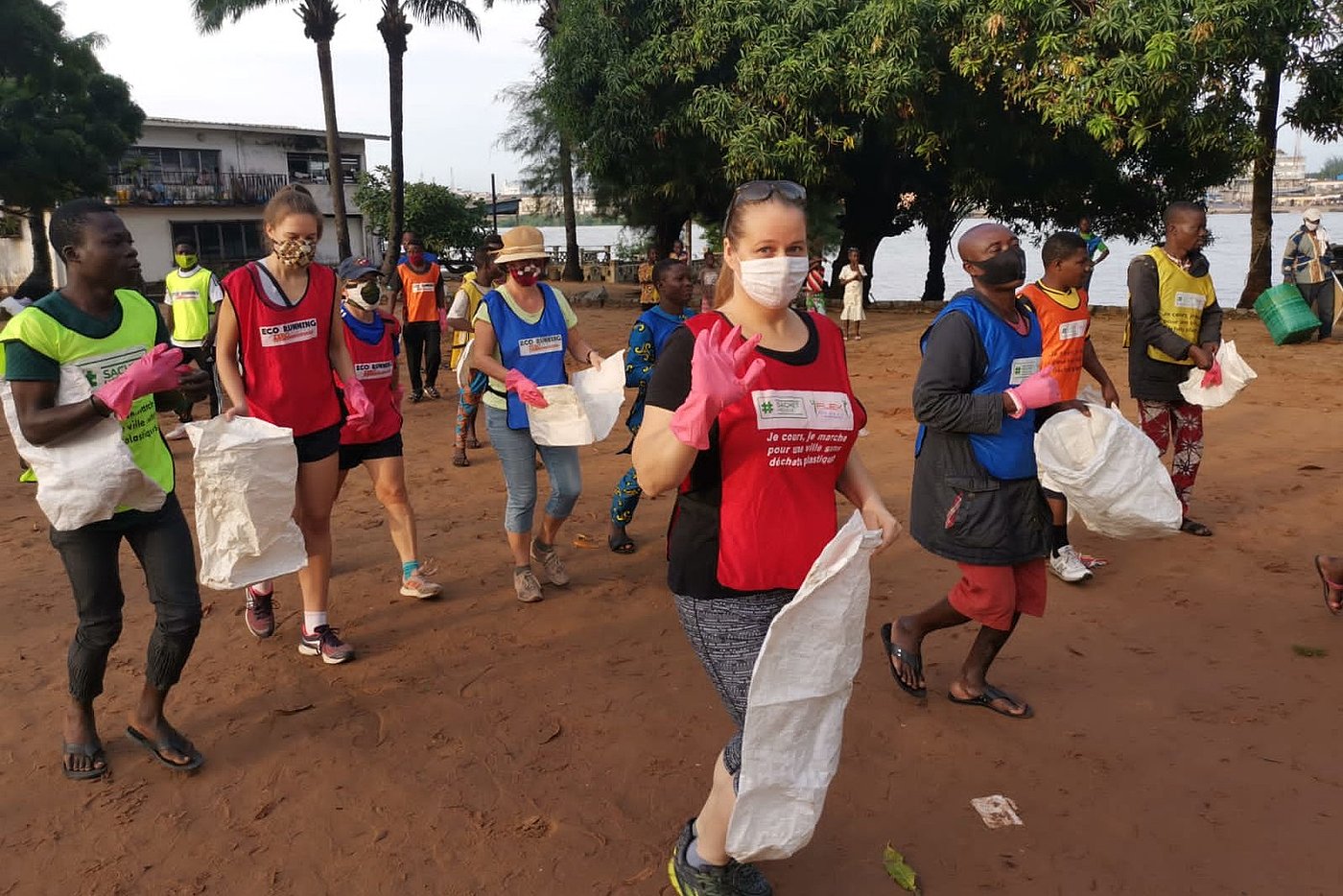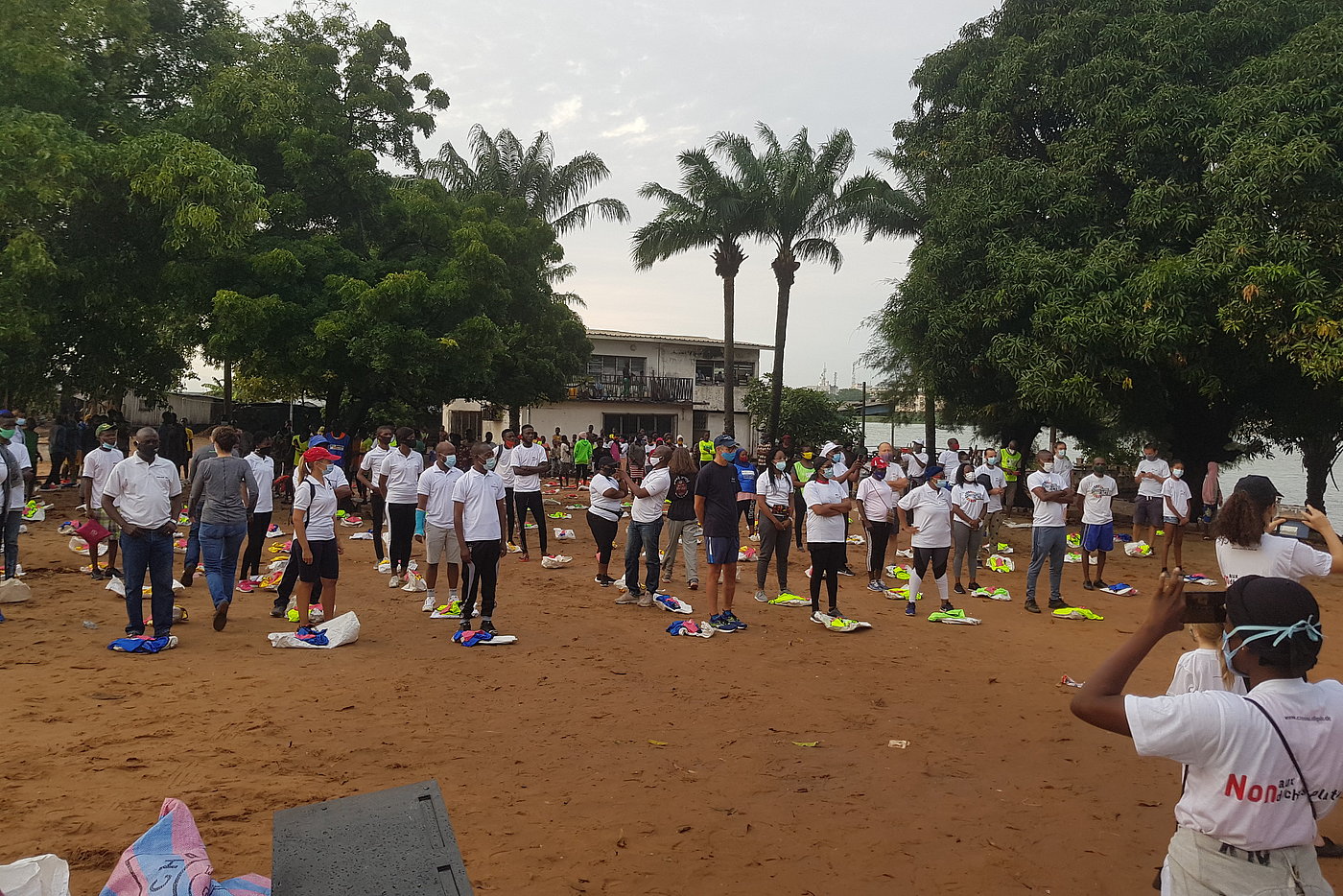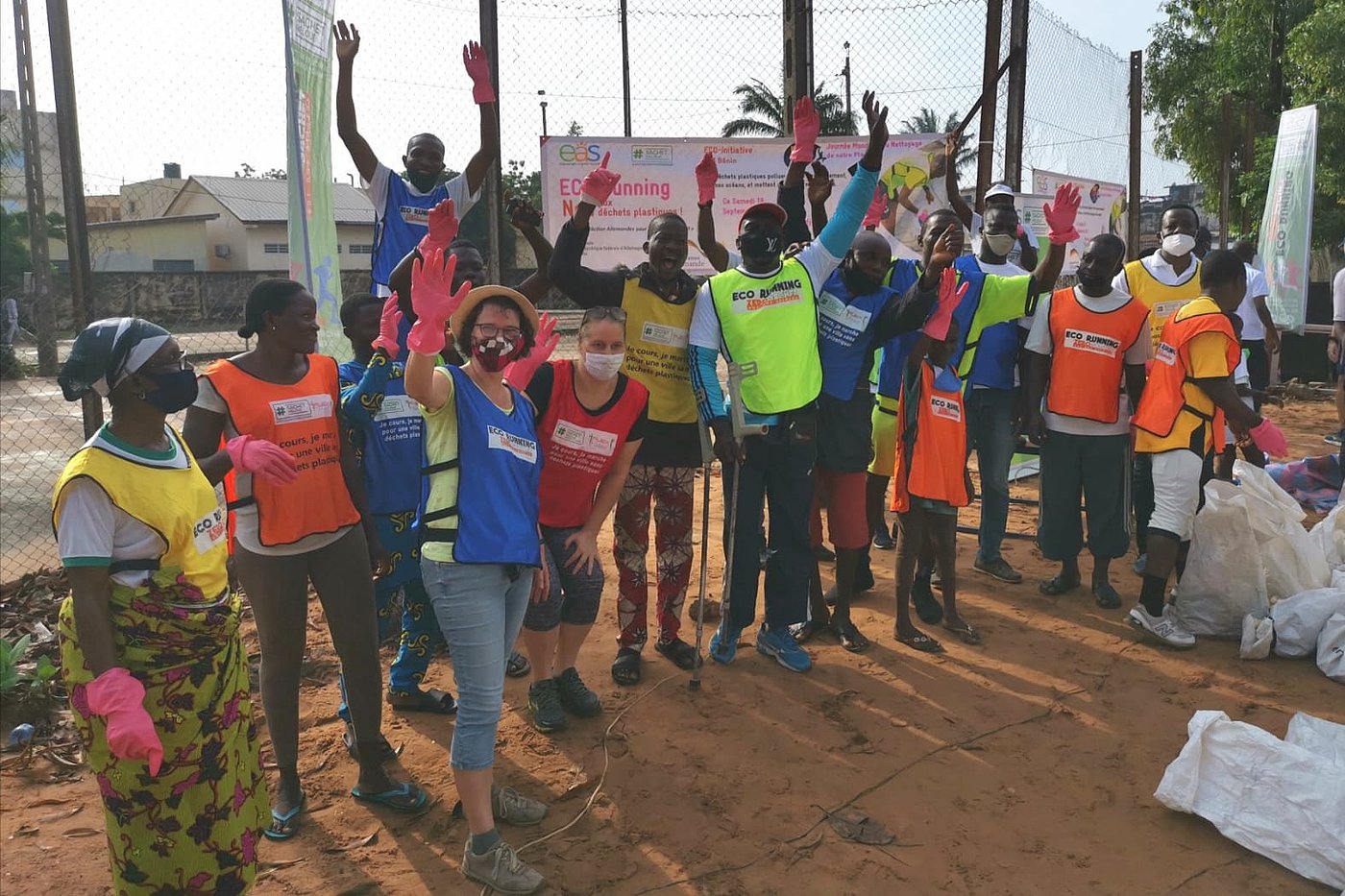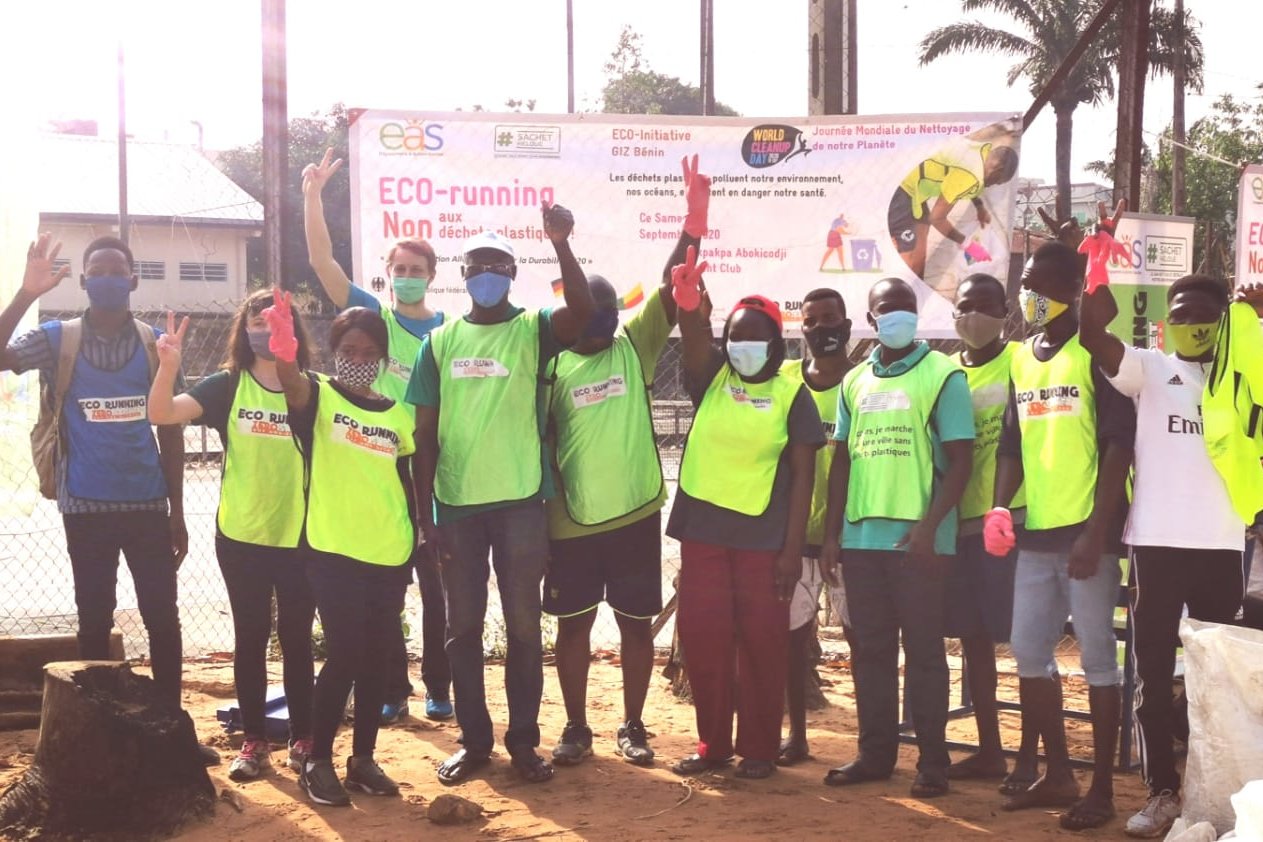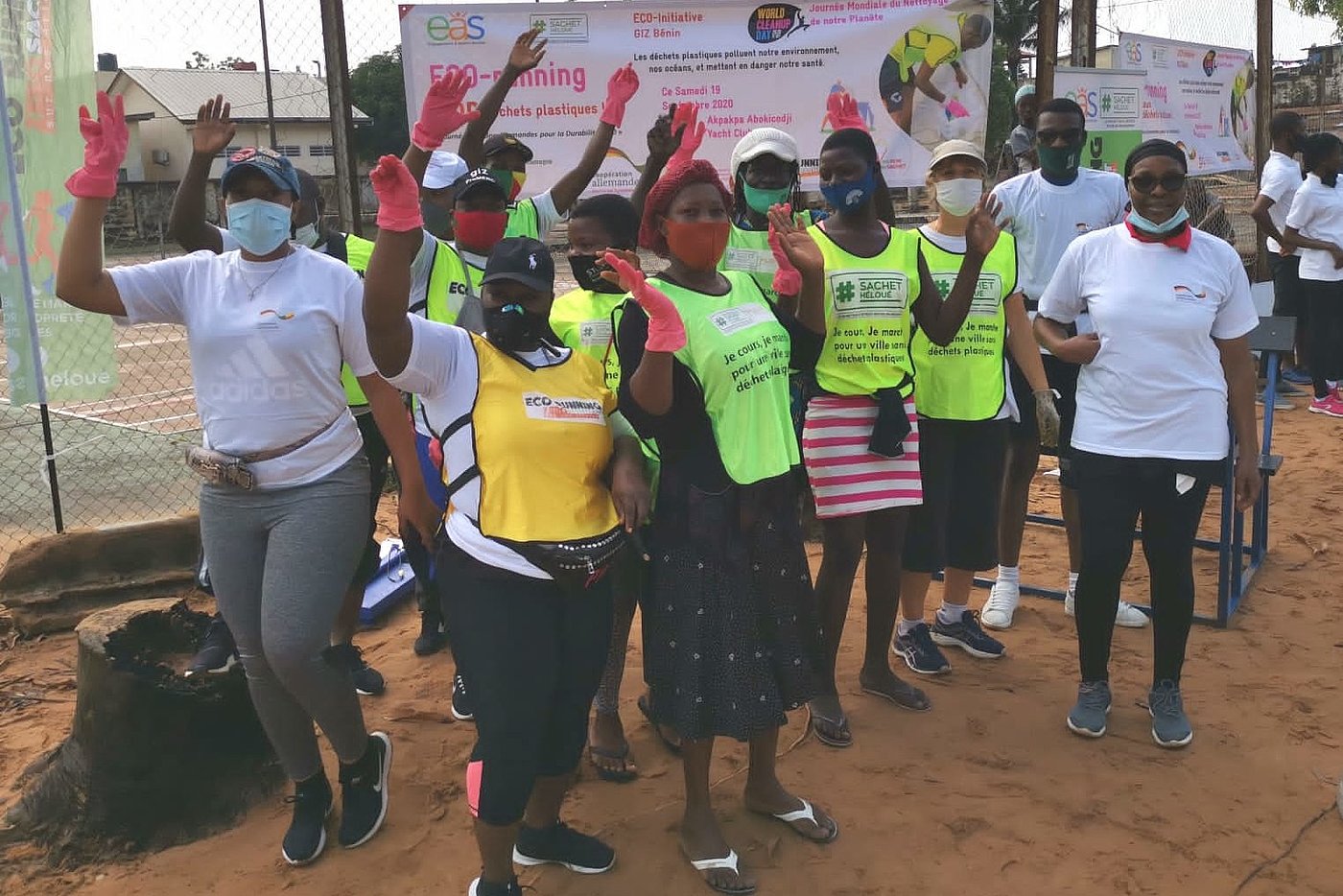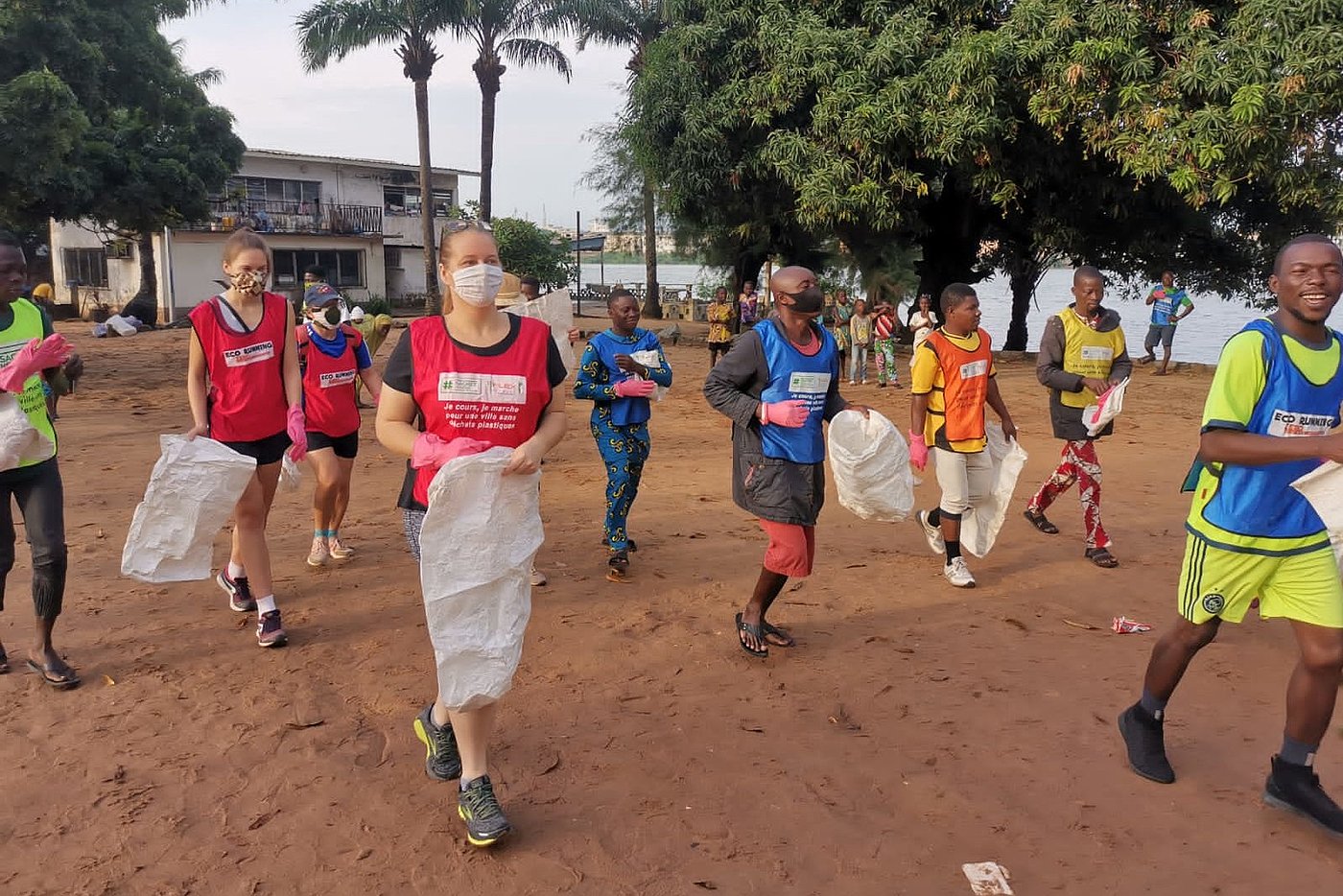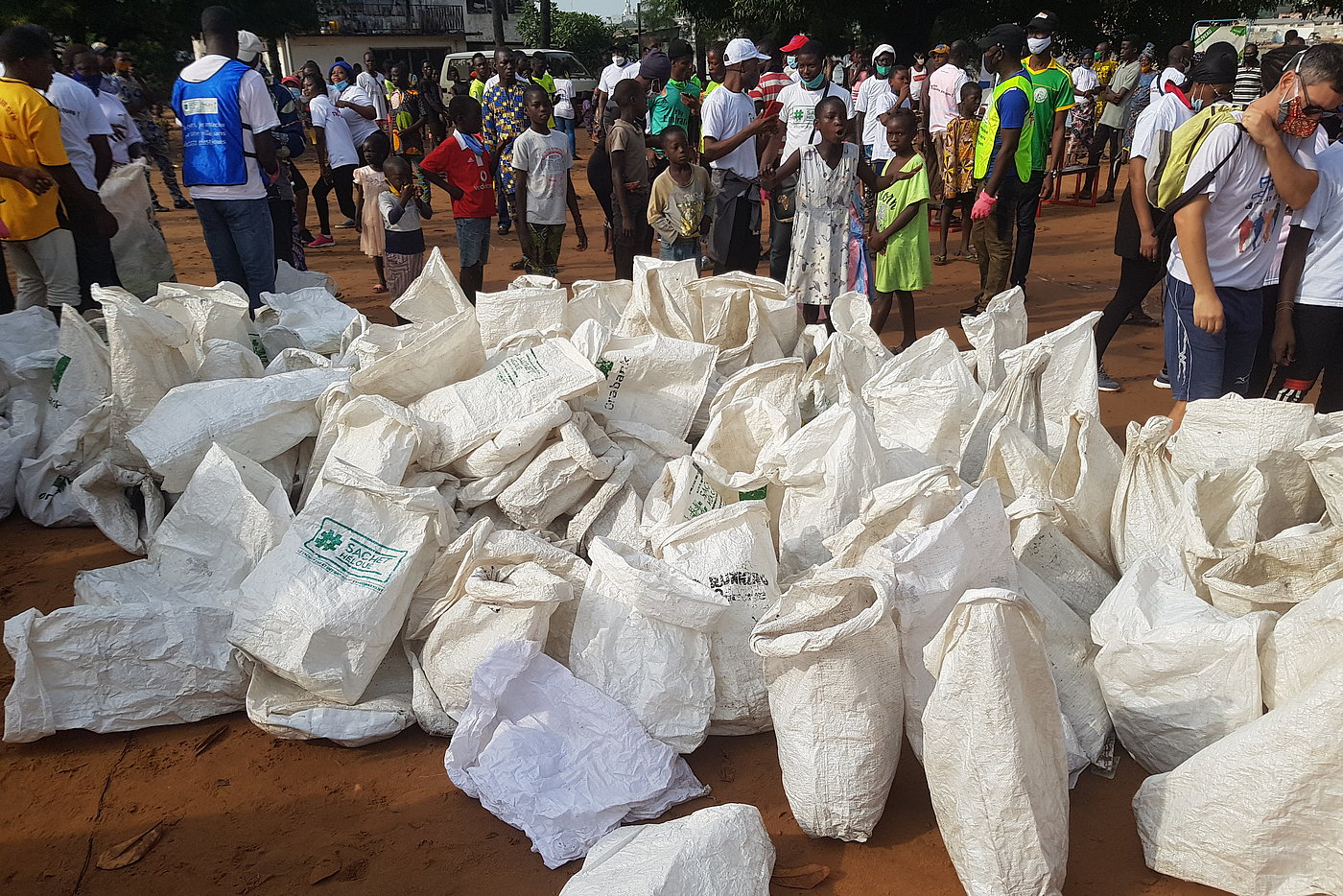Our staff work to drive forward numerous initiatives of their own. They look after bee colonies, for example, and maintain a pool of rental bikes. They grow plants on an area of about 300 square metres in the garden of GIZ’s Meander Building in Bonn. They get together regularly with colleagues at ‘sustainability breakfasts’ where they discuss ideas on sustainability in daily life. And staff members in Benin work to achieve waste recycling.
That particular example illustrates how a country office is generating visibility for the issue of sustainability. At the Eco Run held in Cotonou in 2020, GIZ staff and local people picked up plastic rubbish from the streets. It was later recycled and made into school desks. This event was just the start: a staff member there has launched GIZ’s Benin sustainability initiative. The initiative is built around activities such as eco runs, but also monthly meetings on various topics such as sustainable events or raising awareness of different aspects of sustainability.
In 2020, GIZ set up a sustainability fund to support this kind of staff involvement. It provides start-up funding for new initiatives, among other things.
The groups display commitment and are well networked: they meet regularly at Sustainability Talk events with the Director Corporate Sustainability to discuss their ideas on the subject with him. Representatives of the various initiatives are also included in company-wide strategic processes such as refining the Sustainability Programme. This also includes the goal of involving GIZ staff to a greater extent in working towards even more sustainable action worldwide.
Sustainability Action Days
The German Sustainability Action Days, which the German Council for Sustainable Development organises each year, were held for the most part online in 2020 due to the COVID-19 pandemic. One of the areas GIZ focused on was examples of good corporate sustainability practice. Staff in Germany and colleagues in the country offices shared their experience in this field. The discussion involved questions of sustainable lifestyle, energy supply and the influence of the pandemic on everyday social interaction. However, it was possible for some of the activities to take place on a face-to-face basis: for example, bikes were security marked to protect them against theft and to help make them more attractive as a means of transport.
Information on the following Sustainable Development Goals (SDGs) can be found on this page:

